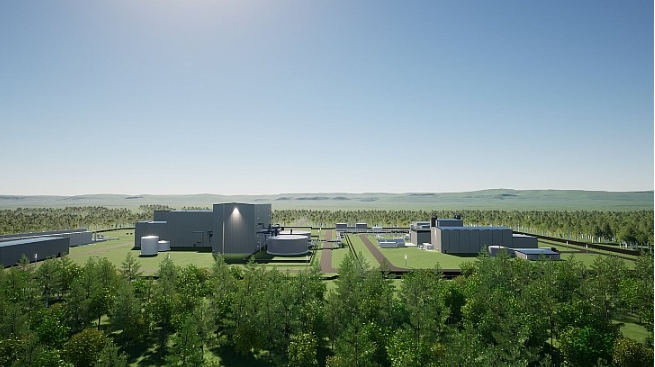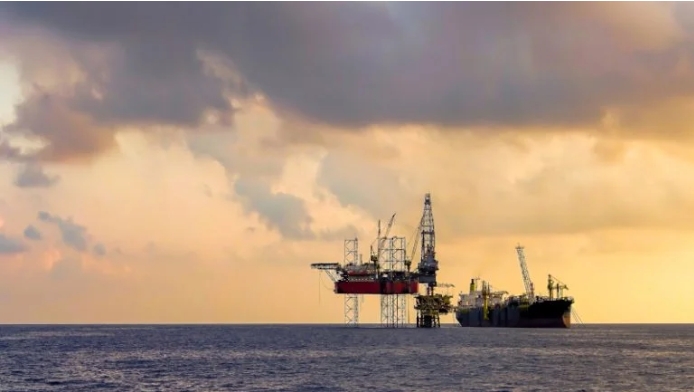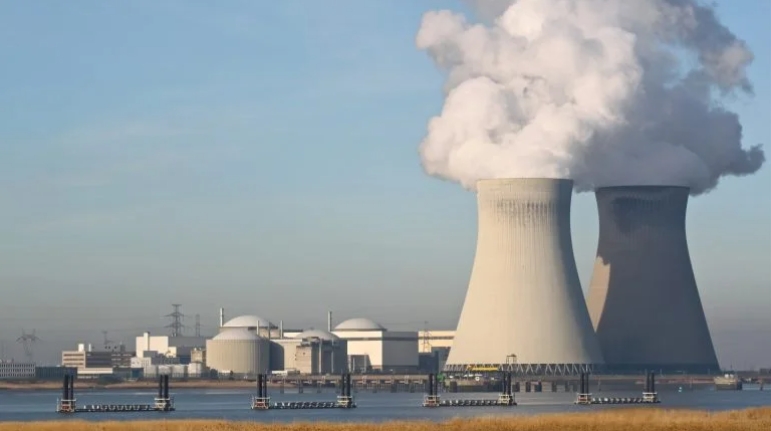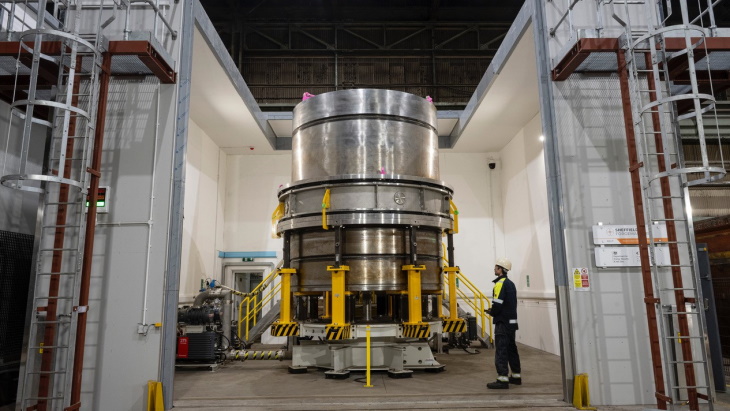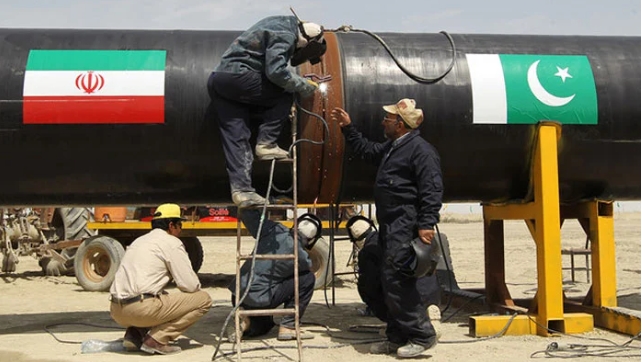
"Iranian authorities are also on the board," say officials.
Pakistan seeks to avoid $18 billion penalty sought by Tehran.
Pakistan failed to lay down pipeline amid US sanctions.
ISLAMABAD: The authorities have started formulating a plan to restructure the much-delayed Iran-Pakistan (IP) gas pipeline project to avoid US sanctions and the $18 billion penalty sought by Tehran, top officials in Law Division told The News.
“Under the new option, Pakistan may not purchase the gas directly from Iran, but through a third party or a powerful country to escape the US sanctions imposed against Iran for its nuclear ambitions. Iranian authorities are also on the board.”
The interim energy ministry was sent a question as to whether the authorities are working to restructure the project to avert the US curbs and penalty of $18 billion, but he gave no response till the filing of this story.
“Pakistan has so far failed to lay down the pipeline in its territory in the wake of US sanctions against Iran whereas Tehran has laid a pipeline from a gas field to the point bordering Pakistan. Pakistan has been very sensitive and careful in implementing the project as it never wanted to be the victim of US sanctions.”
Iran has been advocating that there are no sanctions on gas trade and more importantly on the construction of pipelines within Pakistan’s territory.
So in the latest scenario, in January 2023, Iran formally asked Pakistan to construct a portion of the gas line project in its territory till February-March 2024, or be ready to pay a penalty of $18 billion.
“When Pakistan’s delegation visited Tehran in November-December 2022, Iranian authorities had said that the US sanctions on Iran were illegal and Pakistan, and under the revised agreement, Pakistan was bound to erect the pipeline in its territory till February-March 2024. Iran had already completed part of the pipeline in its own territory from the gas field to the Pakistan border.”
The Gas Sales Purchase Agreement (GSPA) was signed in 2009 for 25 years, but the project could not take shape.
Almost 12 years have passed since the signing of the agreement, and the three-year construction period for the pipeline in Pakistani territory has been wasted.
Under the agreement, Pakistan was supposed to lay down in its territory a pipeline of 781 kilometers from the Iranian border to Nawabshah under the GSPA.
Under the original agreement, Pakistan was bound to pay Iran $1 million per day from January 1, 2015, under the penalty clause. And in case Iran moves an arbitration court, Pakistan would have to pay billions of dollars as a penalty.
The project was to be implemented under a segmented approach meaning that Iran had to lay down the pipeline on its side and Pakistan had to build the pipeline in its territory. The project was to be completed by December 2014 and become functional from January 1, 2015.
Pakistan has tried a lot to ascertain the status of the US sanctions impact if Pakistan goes for the gas pipeline through the US embassy, but no response was attained.
“Now the Attorney General’s Office (AGO) has been tasked to make contacts with US relevant departments to know what US sanctions would impact Pakistan if Islamabad decided to complete the project.”
However, top authorities in the Law Division and the Ministry of Energy, according to sources, have started working on the option to restructure the IP gas pipeline project in such a way that the project gets completed and the penalty of $18 billion is also averted.
The authorities are working to include in the project transaction a third party or a powerful country that does not care about the US sanctions.
“Pakistan will purchase the gas from a third party and this is how the project will be completed setting aside the sanctions and gas intake will also be ensured.”
